In pictures: Bokassa's ruined palace in CAR
- Published
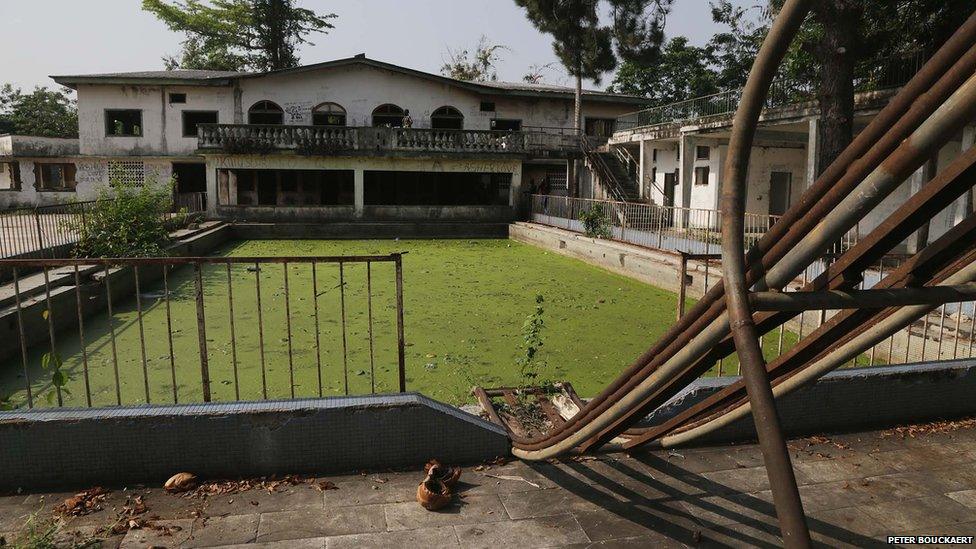
The chaos and unrest in the Central African Republic has not spared the once-grand palace of the country's self-styled emperor, Jean-Bedel Bokassa. Its ruins emerge out of the bush 80km (50 miles) from the capital, Bangui. Its swimming pool is green with algae and the slide has long since rusted.
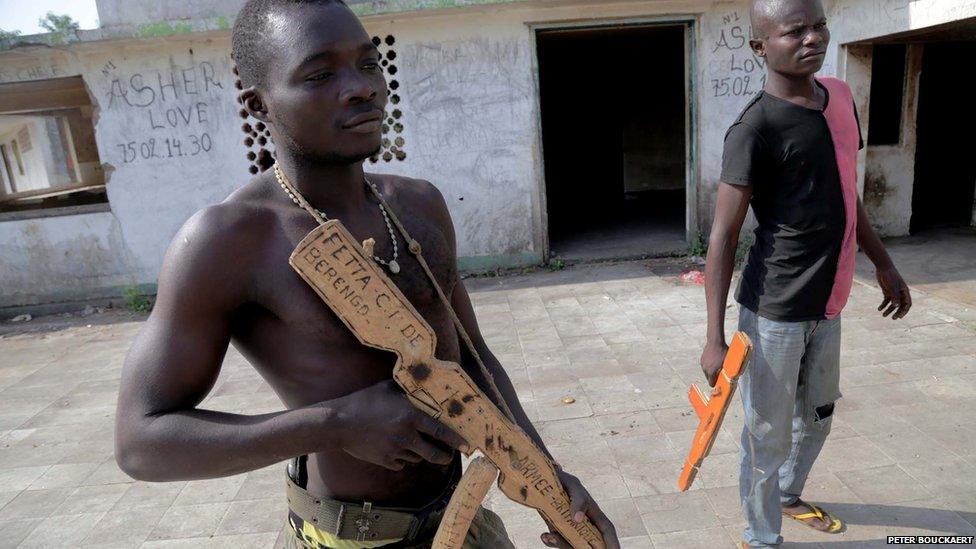
In the 35 years since Bokassa was overthrown, the palace has crumbled and is now home to several hundred rag-tag army recruits. These trainees, carrying wooden weapons, were abandoned by their commanders four months ago, while the Seleka rebel forces were in charge.

During Bokassa’s 14 years in power he was variously accused of being a cannibal and feeding opponents to lions and crocodiles in his personal zoo. His huge statue still dominates the palace’s entrance. In the early 2000s, when a BBC reporter visited the palace, some of the late emperor's 62 children were living in outhouses in the palace grounds, hoping to get permission to turn the empty palace into a tourist attraction. At the time any exhibitions about Bokassa were outlawed.
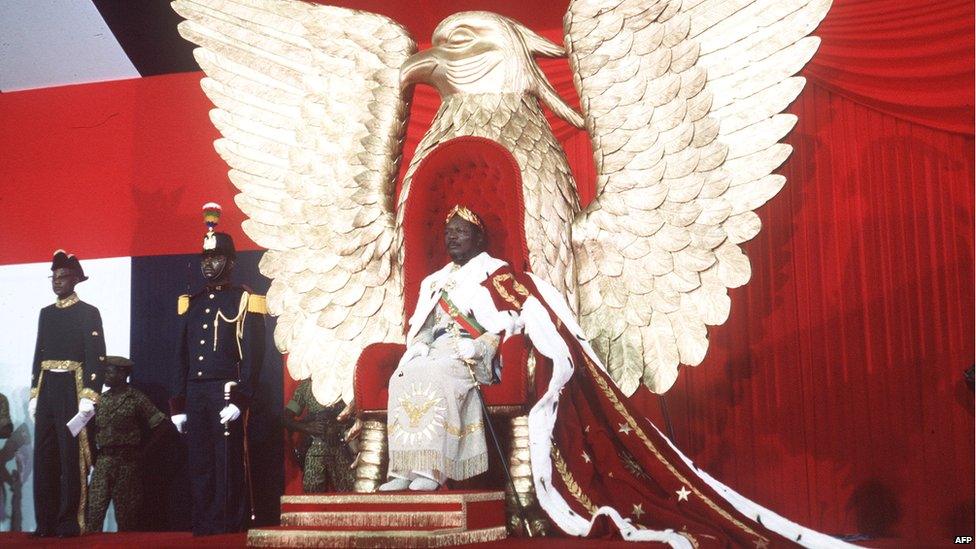
In 2010, then-President Francois Bozize, who was ousted by rebels last March, formally rehabilitated Bokassa, pictured here on the day he was crowned emperor, wearing a costume inspired by Napoleon. Despite the presidential decree, the palace remained in disrepair.
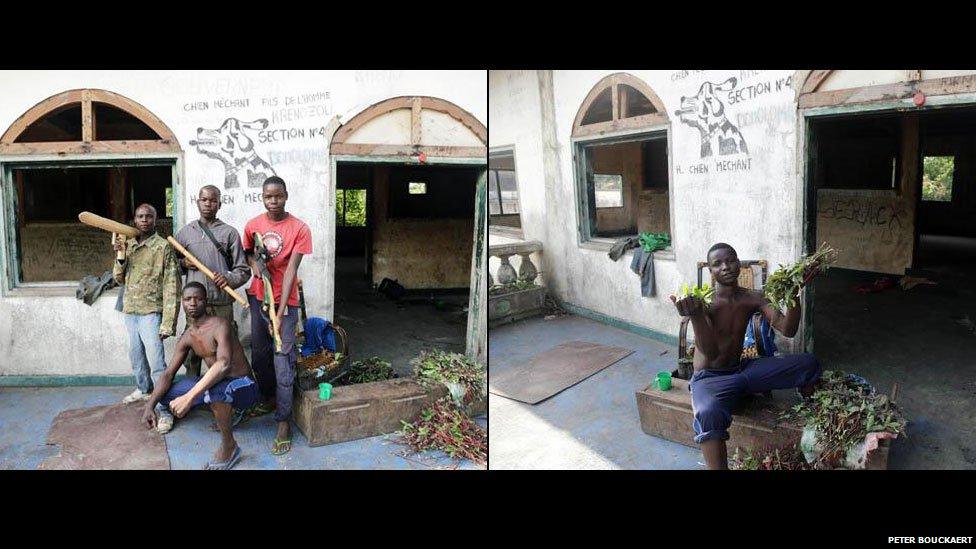
Peter Bouckaert, from Human Rights Watch, who visited the palace this week, said the recruits staying there were too scared to leave in case they are labelled deserters. “They have just been there completely abandoned on their own, trying to keep up some kind of discipline by carrying out military exercises with wooden Kalashnikovs and RPGs,” he told the BBC’s Focus on Africa programme.

The abandoned recruits have been left without food and prepare leaves to eat. Here they are pictured begging for a spoonful of food.
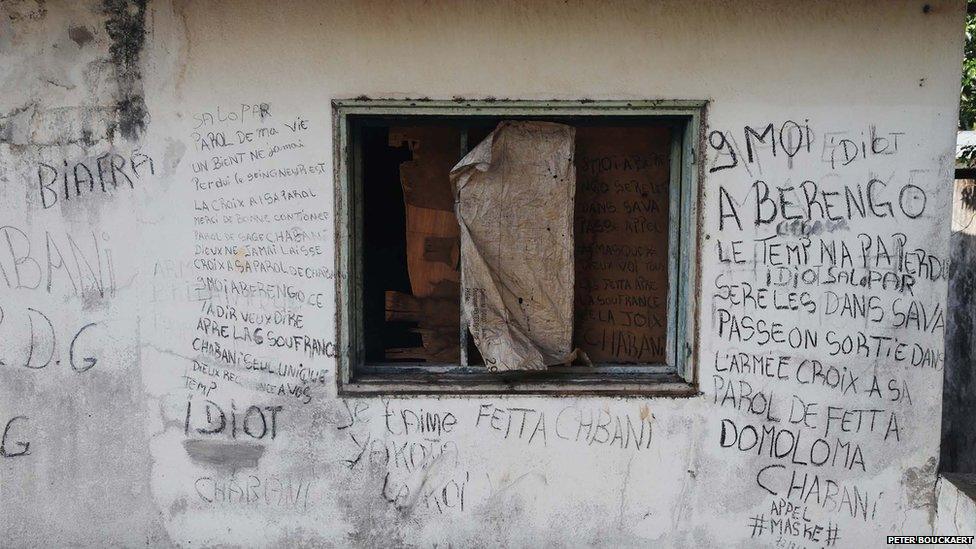
“It was quite a surreal scene to walk around on the grounds of this ruined palace with all of these soldiers with wooden weapons,” said Mr Bouckaert.
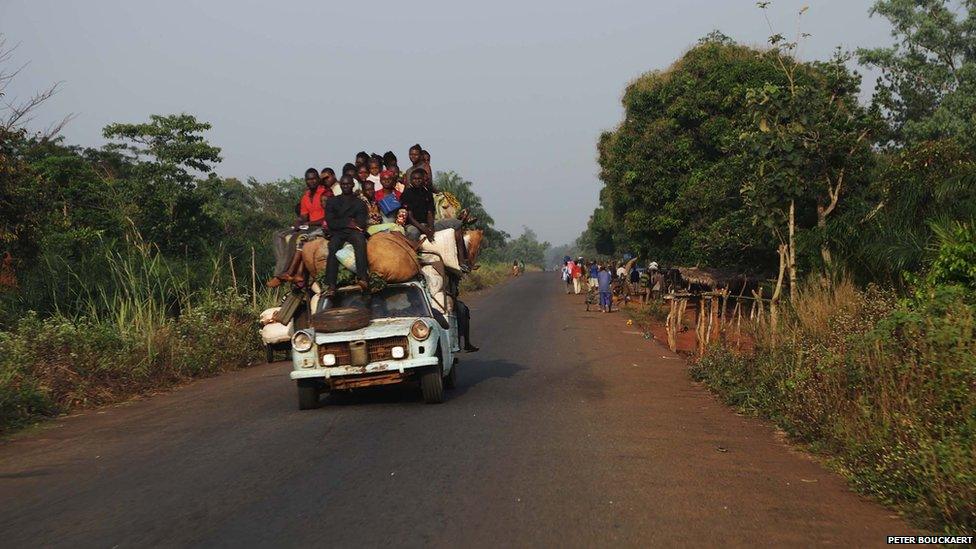
The Human Rights team was on its way to the diamond town of Boda, about 180km from the capital, Bangui, when it came across the palace. The whole journey to Boda, along rough roads, took five hours. CAR has massive mineral wealth but decades of unrest and misgovernance have left most of its people in poverty.
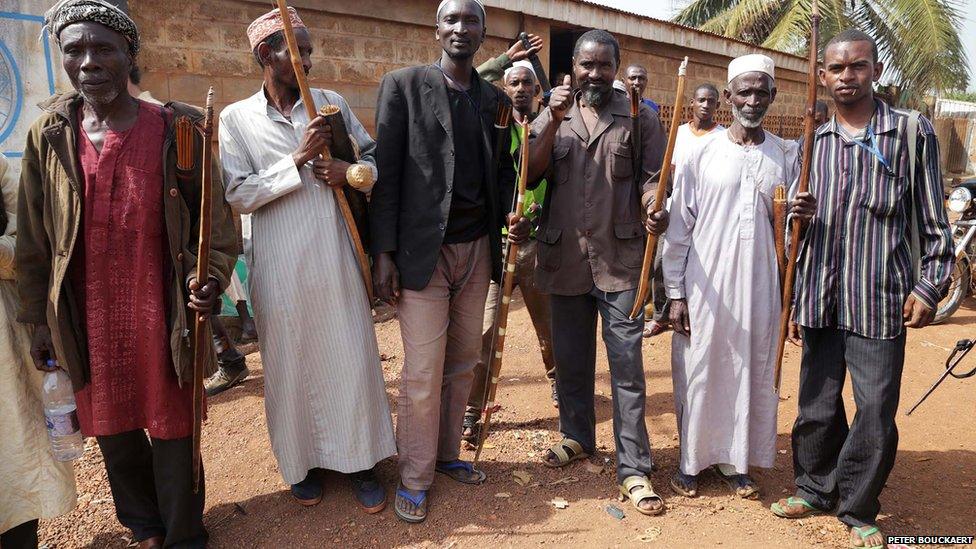
"When we made it to the town, we found thousands of extremely frightened civilians who were cowering in their homes, following very fierce clashes there over the last four or five days which have killed at least 75 people,” Mr Bouckaert said. Residents were begging for French and African peacekeepers to deploy. Here some elderly Muslim men arm themselves with bows and arrows for protection.
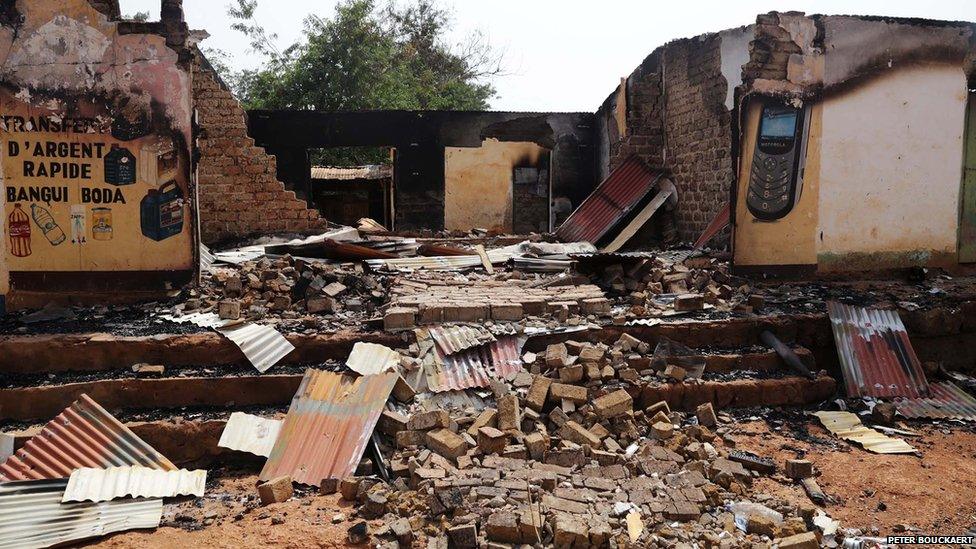
The clashes in Boda between the town's Christian and Muslim communities began following the recent withdrawal of former Seleka rebels, who installed Michel Djotodia as the country's first Muslim leader last year. As part of a regional peace process, he has now resigned but it has not stopped the violence. “This is happening all over this country,” Mr Bouckaert said.